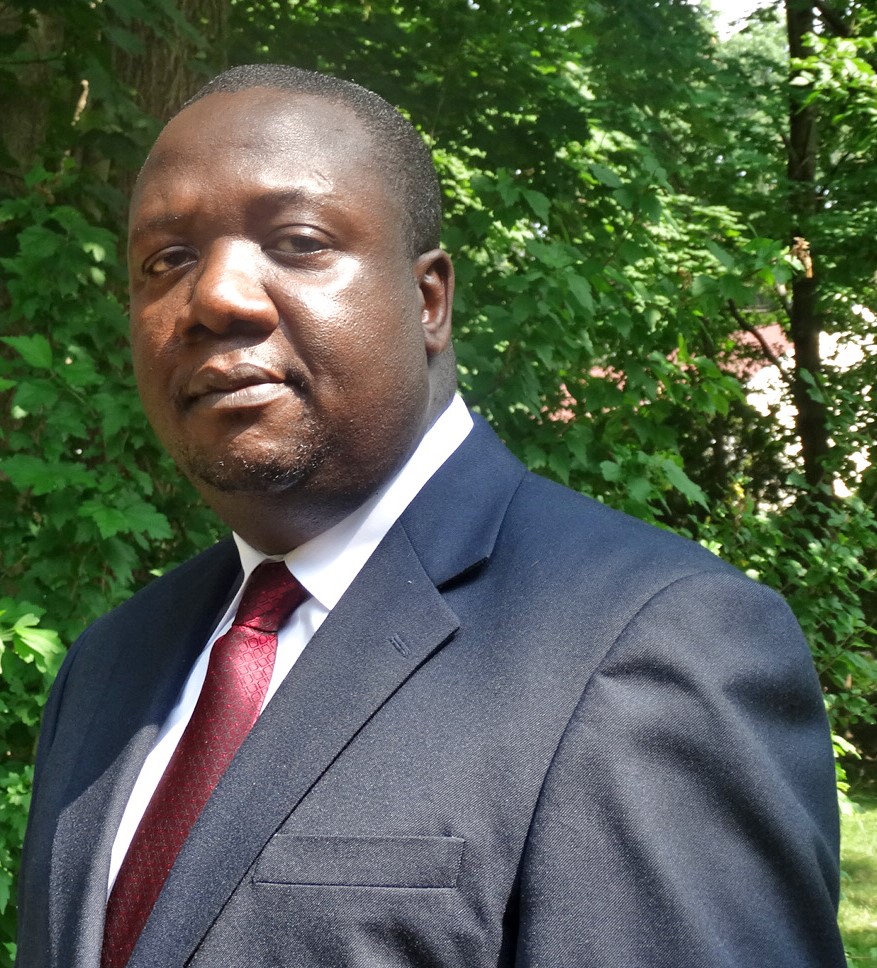Inspire Dialogue Introductions: Tawanda Mutasah
Senior Director of Law and Policy for Amnesty International
“The stranger or ‘the other’ is a notion that we construct in our quest for a resource. In reality, there is no ‘other’…”
Let me start by shifting gear, and thinking about a difficult problem. What if ‘the other’ is not friendly? What if ‘the other’ is dangerous? What if, instinctively, I do not feel safe in his presence or in his company? What if he worships false or strange gods? What if he always comes late to meetings? Martin Luther King, in his autobiography, when he was giving us a glimpse into his years as a university student, talked about how he would polish his shoes to perfection because he was worried about living up to the image of the unkempt man of colour. What if the stranger is simply someone who is obnoxious? What if the stranger is not that dignified, well-dressed lady who is my neighbour in the first-class seat, with whom we exchange smiles over our newspapers, but he is that man in economy class whose elbows are spilling over our shared arm-rest, and I do not know what to do because I am trying to be comfortable?
The perspective I am trying to introduce here is that, ultimately, ‘the stranger’ is all about the notion and the moment when there is competition for a resource. This is not the case when we are in a good space; it is not the happy-clappy moment when I see somebody who may not be my colour but who studied what I studied some thirty countries away, and who therefore I can take to the pub and, over a beer, we can speak together about that country. No, ‘the stranger’ is the person who appears at the moment when we are competing over the same job, and that job is given to that other when I am desperately in need of it to pay for my mother’s welfare.
So if we accept that ‘the stranger’ is constructed in a complex space of shared resources, whatever those resources may be – it might be a quest for water, it might be a job, it might be the NHS, it might be about petrol, it might be a quest for the limelight, or for attention –isn’t there a real challenge to think about how we deal with this ‘stranger’ in a context like that?
In the context in which I have done work over the years – first starting as a human rights lawyer in Zimbabwe, and today being privileged to be a senior director at Amnesty International – one solution that I have found is to think about what the human rights framework can offer us. Rather than constructing the stranger ‘officially’ as human beings will tend to do, let us start from a canon of that which we all share – of the human rights that belong to that individual inherently. This enables us to understand that they have the right to occupy as much space as we do. It enables us to comprehend the obligations that we have – what to do with a migrant, or a refugee, because we have refugee law; what to do with a person with a disability, because we have laws that protect people with disabilities.
But beyond that, one thing that I increasingly discover in my work is that it is not enough to quote the law at each other, or throw it in the face of state actors and bureaucrats. It is equally important to think about what it is, structurally, that is causing the fundamental problems that we are facing today in our environment… So beyond the human rights canon, the second thing I would offer is that we need to train our minds to be able to think about ‘the other’ in a more complex way, which goes beyond the happy-clappy moment. We need to think about what it actually means to be the ‘other’ that we have constructed in a moment of competition for a resource, to deconstruct ‘otherness’ and to start from what, in my faith, was inspired by that radical thinking shown when people said to Jesus: your father and your brothers are looking for you outside; and he said to them, who is my father and who are my brothers? [Matthew 12:47] We need to deconstruct the notion of what ‘identity’ means, but to do this also with the sense of what it means to think of the next person as a human being, an individual who deserves human rights and human dignity.
In short, the stranger or ‘the other’ is a notion that we construct in our quest for a resource. In reality, there is no ‘other’, and by training our minds so that we can see the next human being fairly, we are able to change the world.
Photograph courtesy of Amnesty International
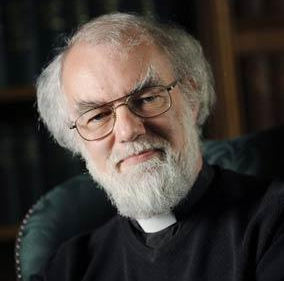
Inspire Dialogue Introductions: Lord Rowan Williams
Master of Magdalene College, Cambridge
“When we go out and encounter others, we are asking for something that is not already there to come alive in us.”
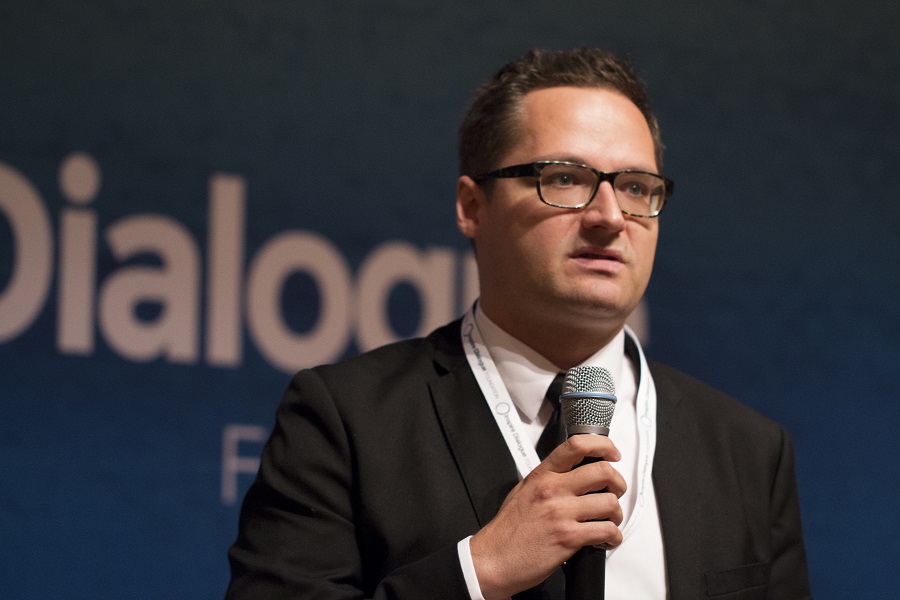
Inspire Dialogue Introductions: Frederick Smets
United Nations High Commission for Refugees (UNHCR)
“Most of these people do not need money, but they need somebody that they can have a conversation with.”

Inspire Dialogue Introductions: Baraa Halabieh
English-Arabic translator
“What makes humanity so beautiful is our multiculturalism… the variety in our colours, cultures and beliefs is what makes us all unique.”
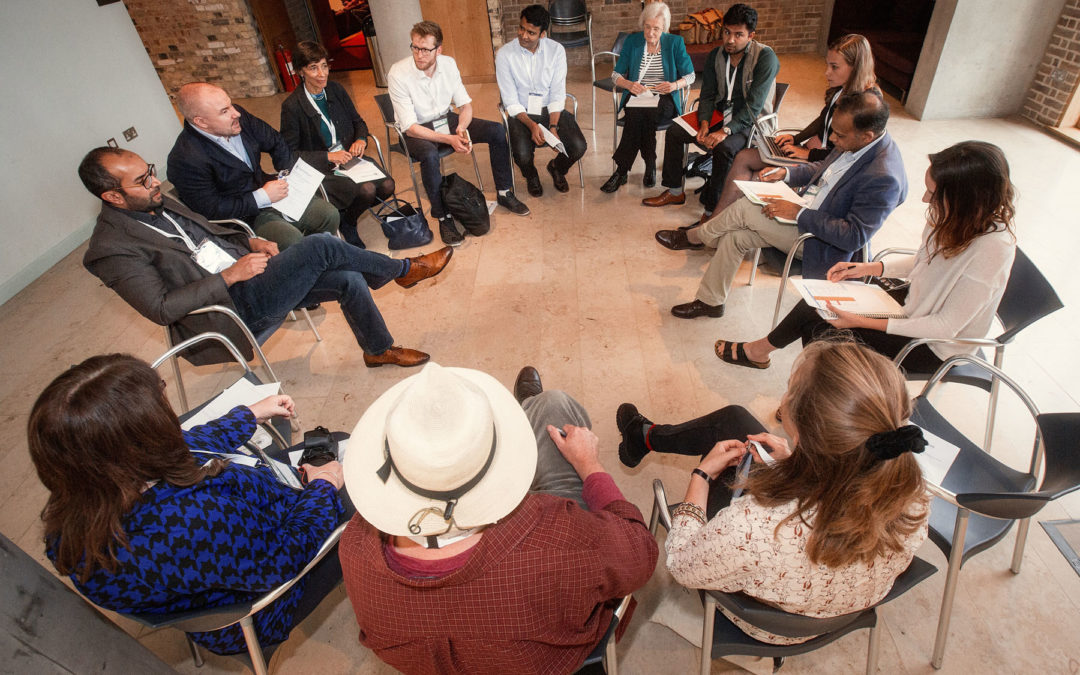
Inspire Dialogue Summaries: The Environment
Bhaskar Vira
“How do we have a dialogue with someone who is fifty years away from inhabiting this earth? This leads to considerations of inter-generational responsibility.”
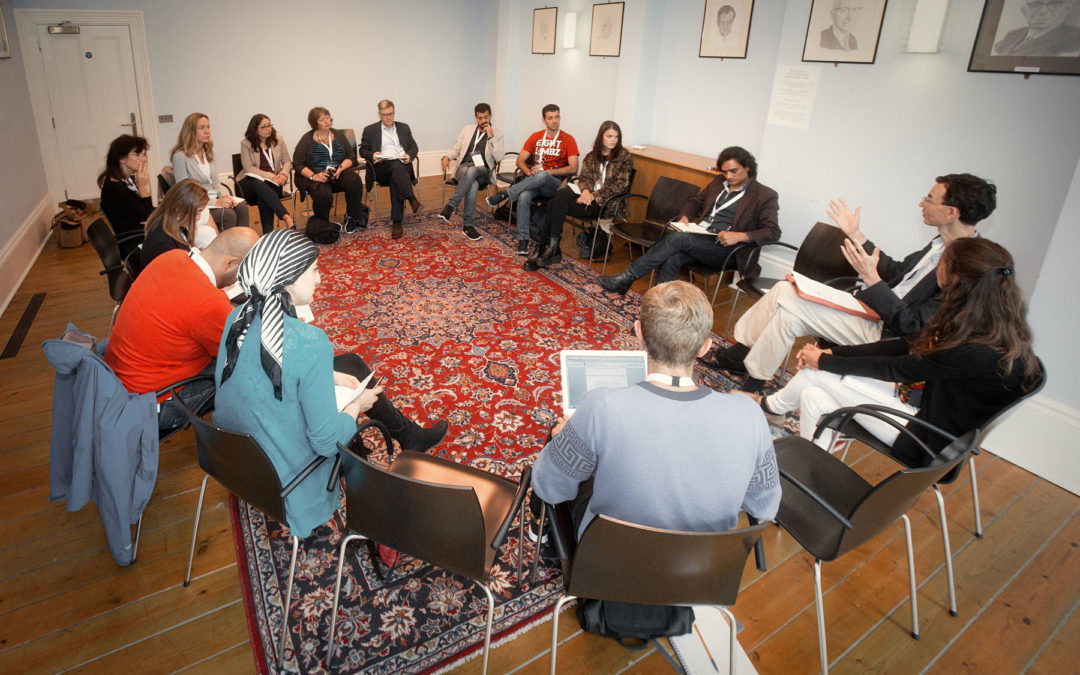
Inspire Dialogue Summaries: Conflict Resolution
Brendan Simms and Alison Liebling
“We were criticised and ridiculed by other professional groups for coming into a maximum security prison with the word ‘trust’ in mind.”
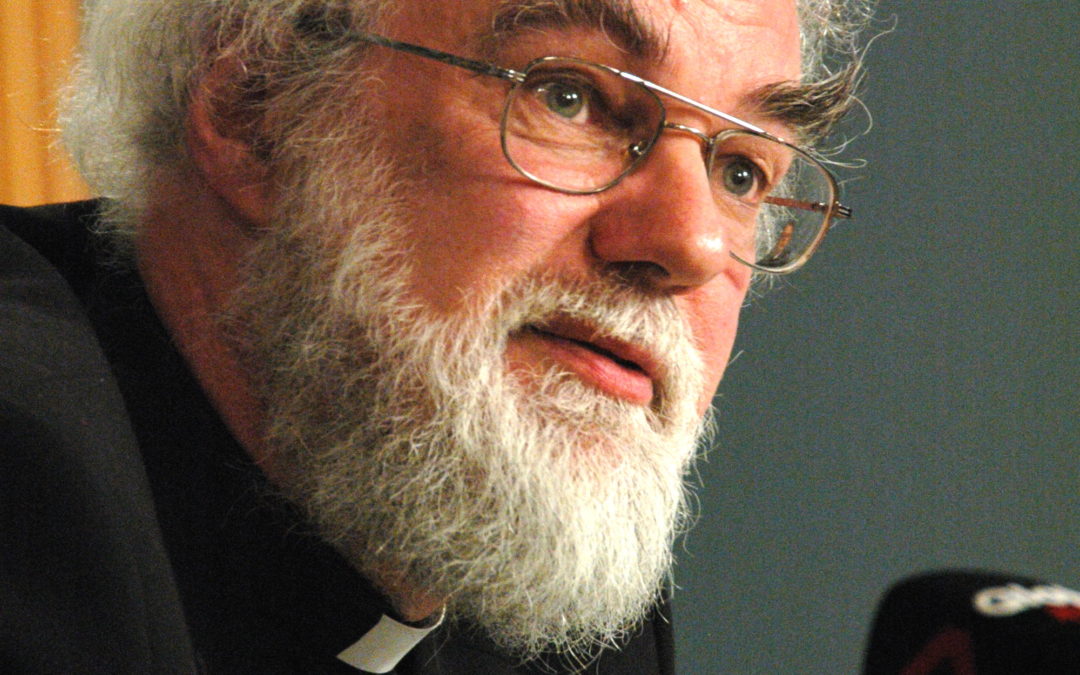
Inspire Dialogue: Final Summary
Lord Rowan Williams
“To be able to imagine that things don’t have to be as they are is perhaps one of the most important things that human beings ever do.”
MORE IN BESHARA MAGAZINE:
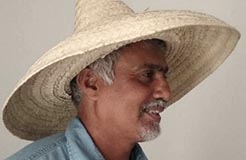
K. Ramesh: Haiku Poet And Ecological Activist
Robert Hirschfield presents the work of a dedicated lover of nature
‘A haiku poet cannot be a witness alone. He must be a spokesperson as well.’
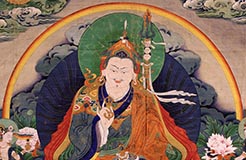
Unlocking the Heritage of Tibet
Dylan Esler talks about the ancient contemplative tradition of Dzogchen Buddhism – the ‘effortless path’ – and the 84000 Project, which is preserving the precious heritage of Tibetan Buddhism
‘Once we learn to dissolve that sense of having to react to whatever occurs, then we open up to a more spacious perspective, and that is the perspective of non-duality.’
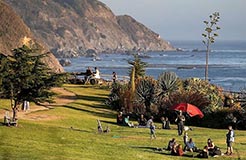
The Vision of Esalen
Michael Murphy, co-founder of the Esalen Institute in California, reflects on the contribution of an institution that has revolutionised our understanding of spirituality
‘We’re all, whether we know it or not, together involved in a cosmic jailbreak, breaking out of our golden chains.’
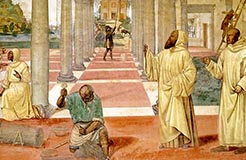
Transmission Across Cultures
Writer and art historian Diana Darke brings to light the largely unacknowledged influence of Islamic architecture and craftsmen on the iconic buildings of Europe
‘If you are building a prestige project, of course you’re going to go for the best, wherever it comes from.’

George William Russell: A Forgotten Irish Mystic
Gabriel Rosenstock gives a poetic response to twelve visionary paintings by the ‘myriad-minded’ writer and polymath
‘[Through his works] we may see the world once more in its primal beauty, may recover a sense of the long-forgotten but inextinguishable grandeur of the soul’
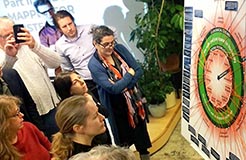
Rolling Out the Doughnut
Leonora Grcheva of DEAL talks about how Kate Raworth’s innovative economic theory is being translated into sustainable practice in cities across the world
‘The Doughnut gives us a new way to conceptualise who we are, how we position ourselves as part of the living world, and how we can reimagine our future’
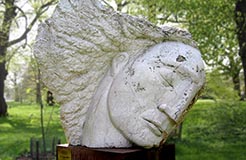
Emily Young: Giving Voice to the Earth
The distinguished sculptor Emily Young talks about her work and the stories that stone can tell us
‘What does it look like when a human is at one with the universe? Embracing it all…’
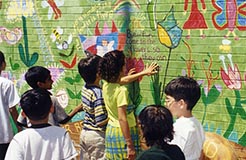
Richard Lewis: Pilgrim in the Land of Children
Robert Hirshfield appreciates the work of a teacher who has devoted his life to inspiring children to write imaginative poetry
‘A child is the privacy of a universe learning to talk to itself.’

The Power of Gold
Alan Ereira talks about his new book, which traces the relationship between human beings and this most precious metal over a period of 7,000 years
‘The notion that gold contains immutable value is somehow enormously powerful. Of course, gold doesn’t actually have that value in itself; we attribute that to it without thinking, unconsciously.’
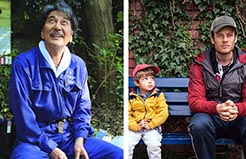
Introducing… ‘Perfect Days’ and ‘Nowhere Special’
Jane Clark watches two films with a contemplative theme
